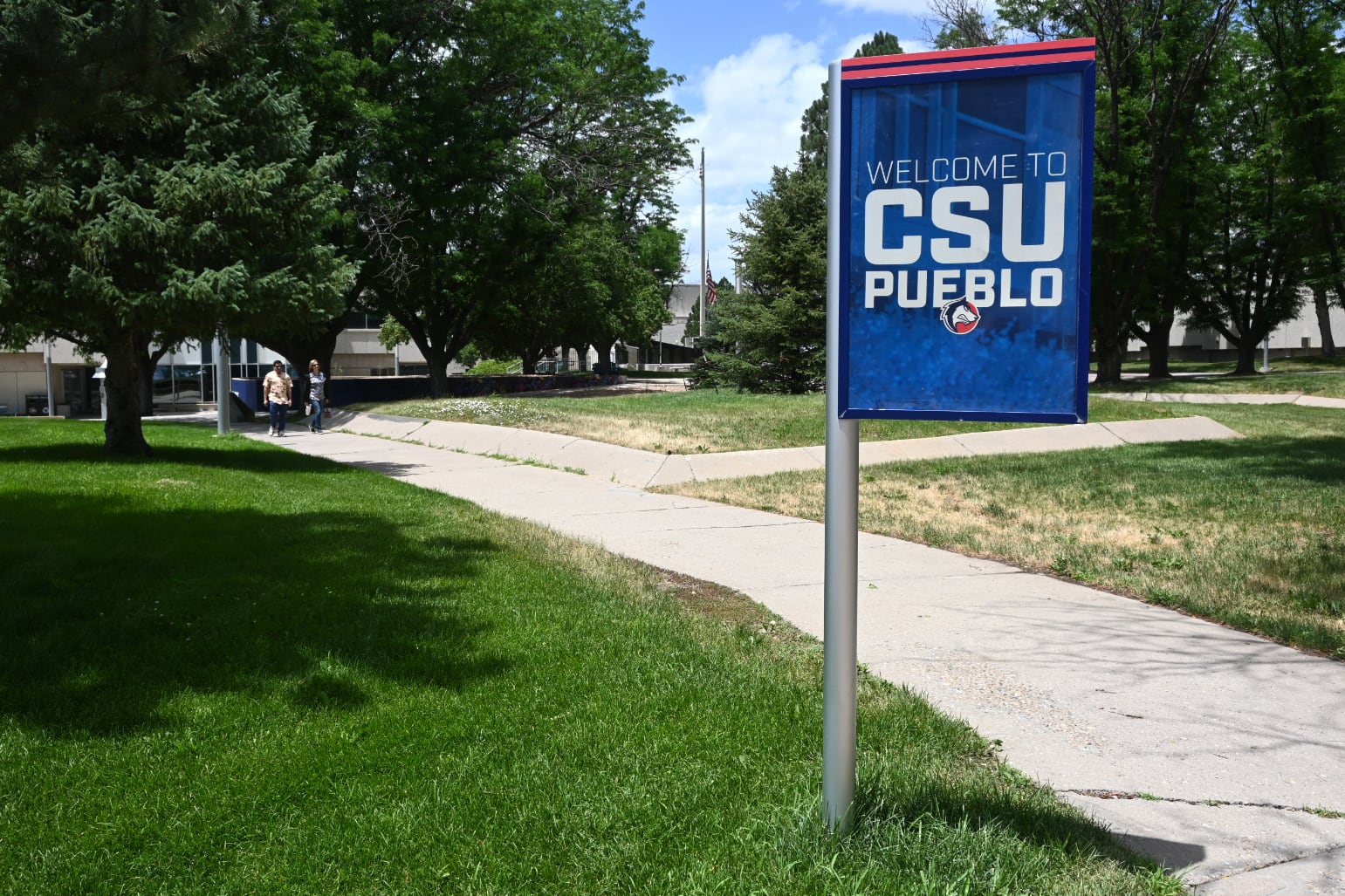Beyond High School is our free monthly newsletter covering higher education policy and practices in Colorado. Sign up to get it delivered to your inbox.
This fall, students from 10 neighboring states will pay in-state tuition rates at Colorado State University Pueblo.
The decision made late last year to extend in-state tuition rates to more students is part of a broader strategy to attract students as the number of high school graduates nationwide declines. At the same time, more Colorado students are heading out of state.
The school joins a growing number of regional universities wanting to become more competitive in enrolling out-of-state students through so-called tuition reciprocity agreements.
CSU Pueblo’s Kristyn White Davis, who helps oversee enrollment, said many students find Colorado to be a desirable place to attend college, and school officials want Pueblo to become a destination. The school has lower tuition and fees on average than larger universities such as CSU Fort Collins and the University of Colorado Boulder.
“Tuition continues to increase,” said White Davis, who is CSU Pueblo’s vice president for enrollment management and extended studies. “This is a way to sort of reach out to students who might not be able to afford higher priced institutions and sort of meet them where they are — create a reason for them to be able to come here.”
Reports show high school enrollment is expected to decline by about half a million students by 2041, including several thousand Colorado graduates a year starting in 2025. The share of Colorado high school graduates heading to other states for college has also increased in recent years to almost a third.
Like many regional universities, CSU Pueblo relies mainly on enrolling local students — a group that represents a limited pool. About 50% of the nearly 4,000 students attending CSU Pueblo come from the southern Colorado region.
By offering a tuition discount to students in other states through the school’s Regional In-State Equivalent, or RISE, Tuition Program, school officials hope out-of-state students take notice.
The school previously offered in-state equivalent tuition discounts to a limited number of New Mexico students. Now, the school will expand that to 10 states: Arizona, California, Kansas, Nebraska, Nevada, New Mexico, Oklahoma, Texas, Utah, and Wyoming. The program also allows in-state tuition for international students from China, Italy, Mexico, Slovenia, and South Korea.
On average, out-of-state students pay $23,099 to attend CSU Pueblo full time. The RISE tuition discount drops tuition by over $7,000, to $15,940.
The idea to offer these types of so-called tuition reciprocity agreements has been around for years. For example, the Western Interstate Commission for Higher Education, or WICHE, has several programs that help out-of-state students in western states secure lower tuition rates.
One such WICHE program started in 1988 and has grown to over 170 schools, including CSU Pueblo, that offer out-of-state students 150% of the base in-state tuition rate.
Colorado also has 17 tuition programs for certain out-of-state students built into statute, according to Colorado Department of Higher Education officials. Those laws include a tuition reciprocity agreement with New Mexico and in-state tuition for students returning from the Peace Corps, regardless of where they previously lived.
About 17% of CSU Pueblo’s students are from out of state, and White Davis said the school chose the 10 states based on where the majority of out-of-state students come from. In the first year, White Davis said the goal is to increase out-of-state enrollment by a modest 25 students.
She hopes the RISE program will grow as more out-of-state students see the value of a CSU Pueblo education, she said. Graduates have high economic and social mobility and are competitive in the job market, she said.
“The idea is to really highlight opportunities for students,” she said. “CSU Pueblo is a great place to go to college and have a really wonderful experience.”
Jason Gonzales is a reporter covering higher education and the Colorado legislature. Chalkbeat Colorado partners with Open Campus on higher education coverage. Contact Jason at jgonzales@chalkbeat.org.







